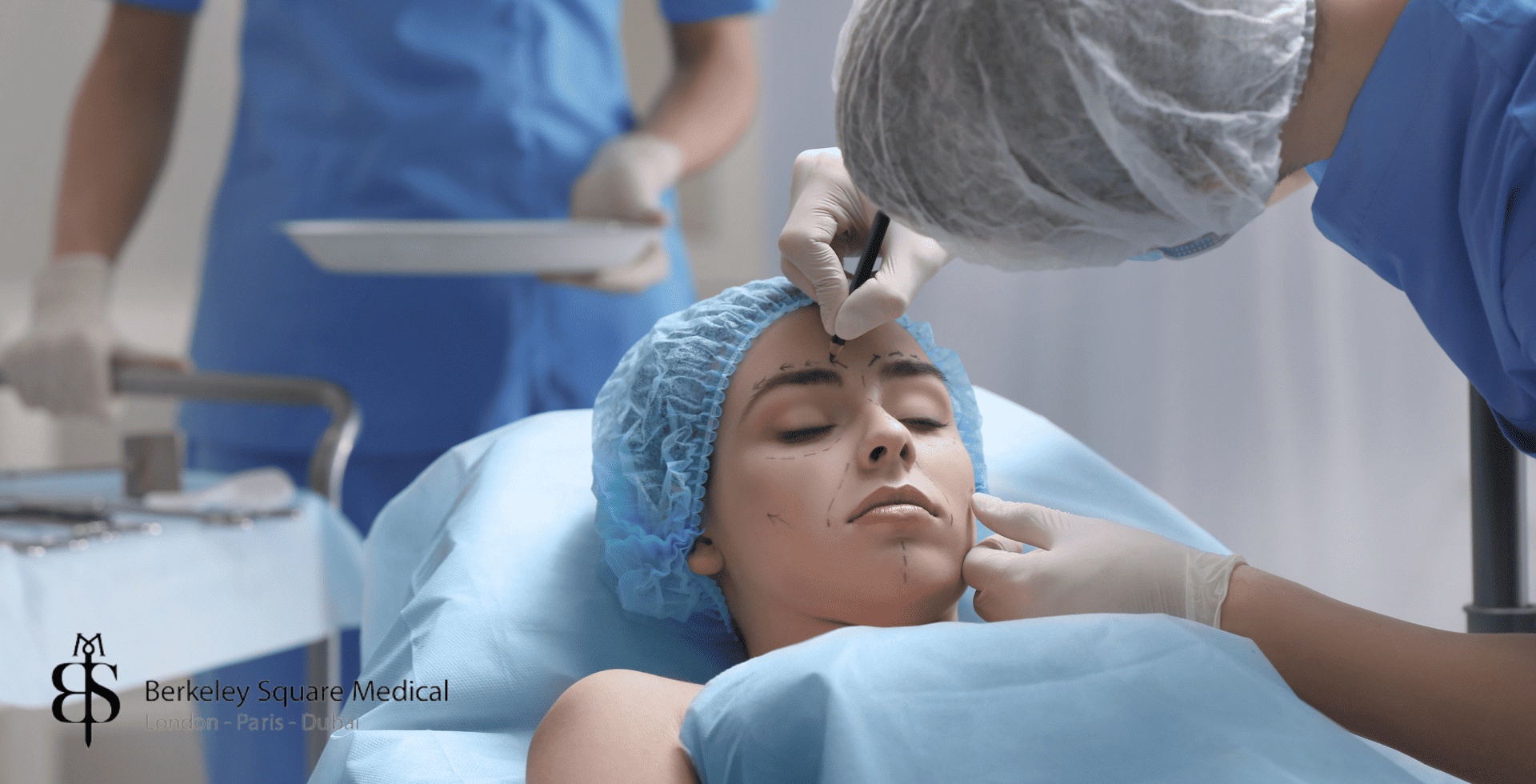
Turkey is known for its advancements in medical tourism, and rhinoplasty surgeries are among the most popular treatments sought by patients from around the world. However, as with any medical procedure, there are hidden risks that many foreign patients may not fully understand or appreciate.
At Berkeley Square Medical, we routinely perform secondary rhinoplasty on patients who experienced a failed primary surgery in foreign countries, so we hear these stories first-hand. In this article, we’ll explore these risks, specifically in the context of rhinoplasty surgeries in Turkey.
Rhinoplasty surgeries, also known as nose jobs, are a popular cosmetic procedure that seeks to reshape the nose to achieve a more aesthetically pleasing appearance. In Turkey, rhinoplasty surgeries are especially popular due to the country’s reputation for having highly skilled surgeons, modern facilities and a significantly lower cost than other countries like the United States, UK or Europe.
Despite the reputation for high-quality surgeons performing rhinoplasty surgeries in Turkey, the industry is not without its flaws. In an effort to keep up with high demand and stay competitive with one another, many clinics put pressure on their surgeons to finish procedures as quickly and inexpensively as possible. This may lead to the cutting of corners and the overlooking of important details that can result in long-term medical issues for patients.
The pursuit of shortcuts in performing rhinoplasty surgeries can have serious consequences for patients. Rushed procedures may result in visible scars or deformations that require additional procedures to correct. Issues such as blood clots, infections, and anesthesia complications can arise when surgeons have too many other surgeries to perform, leading to potential lawsuits and harm to patient lives.
The pressure to cut corners may also lead some clinics to hire less experienced surgeons or offer training courses that provide only basic knowledge of rhinoplasty. These surgeons may lack proficiency in understanding the complexities involved in the procedure and may not have enough experience to identify potential risks and complications that could arise.
Patients treated by overworked surgeons or inexperienced surgeons may ultimately receive suboptimal care, putting their health and safety at risk. Some patients may even require corrective surgery or ongoing medical treatment to recover from damages caused by a shoddy procedure.
The language barrier can be one of the most significant obstacles for patients who travel to Turkey for rhinoplasty surgery. Many patients may not speak the local language, making communication with medical professionals challenging. Misunderstandings during consultation can lead to misaligned expectations, and patients may end up with results they did not desire.
Surgeons need a detailed understanding of the needs and aesthetic desires of their patients. This kind of communication during a consultation is particularly critical for rhinoplasty procedures, where small changes can lead to large differences in the final appearance of the nose. For this reason, communication breakdowns can have profound consequences in terms of patient appearance and overall satisfaction with the results.
When patients travel overseas for a procedure, it is important that there are interpreters available to facilitate the communication process. However, even with interpreters and visual aids, nuances may still be lost in translation, and cultural differences can compound the difficulties of communication. These potential obstacles may not only compromise the patient’s end result but may also lead to misunderstandings that lead to undesirable and unsafe outcomes.
Although Turkey has a solid reputation for medical tourism, the country’s regulatory framework for cosmetic surgeries, including rhinoplasty, may not be equivalent to that of other countries. In some cases, clinics may not meet the necessary health and safety standards required in other countries, and the surgeons who perform rhinoplasty surgeries may continue to practice even after committing medical malpractice.
While there may be potential benefits associated with travelling to Turkey for rhinoplasty surgeries, it’s important to carefully research the clinic and surgeon you’re interested in visiting. Some clinics may cut corners or not meet the necessary standards for a safe and healthy medical environment, while surgeons may be under intense pressure to do hurried work, leading to potential complications down the line. As with any medical procedure, it’s always best to err on the side of caution and do your homework to ensure quality care and a positive experience.